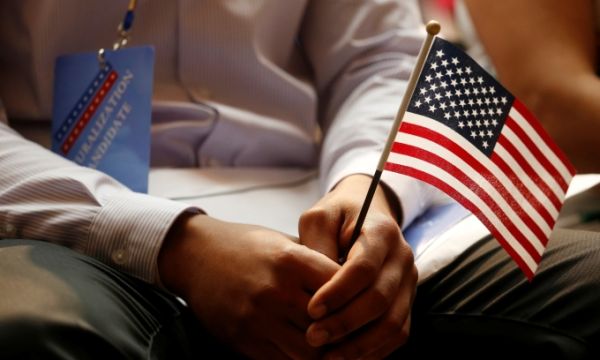
A new citizen holds a U.S. flag at the U.S. Citizenship and Immigration Services (USCIS) naturalization ceremony at the New York Public Library in Manhattan, New York, U.S., July 3, 2018. Photo by Reuters
A new directive by President Donald Trump’s administration could make it more difficult for foreigners to visit or live in the U.S. if they have certain medical conditions such as diabetes or obesity or lack the economic resources and assets to support themselves.
The guidance, issued last week in a cable from the State Department and obtained by The Associated Pressdirects embassy and consular officials to comprehensively and thoroughly vet visa applicants to demonstrate that they will not need to rely on public benefits from the government any time after their admission in the U.S. Experts say it could further limit who gets to enter the country at a time when the Republican administration is already tightening those rules.
The directive reveals how the Trump administration interprets public charge, the concept in immigration law that foreigners can be refused entry or permanent residency status if they are likely to rely on U.S. government resources, such as certain types of cash and food aid.
While federal law already required those seeking permanent residency or legal status to prove they would not be a public charge, Trump in his first term widened the range of benefit programs that could disqualify applicants, and the guidelines in the cable appear to go further in scope.